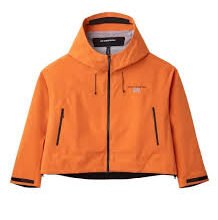In a world where safety and security are paramount, the humble door lock plays a crucial role in protecting our homes and businesses. With an overwhelming variety of locks available, choosing the right one can be daunting. In this comprehensive guide, we will explore the different types of door lock, their features, and tips for installation and maintenance.
Understanding Door Locks
Door locks are mechanisms that secure a door and control access. They can vary widely in complexity, design, and security level. The right lock for your door depends on various factors, including the type of door, your security needs, and your budget.
Why Door Locks Matter
- Security: The primary function of a door lock is to provide security against unauthorized access. A quality lock can deter burglars and protect your belongings.
- Privacy: Locks offer privacy in residential and commercial settings, allowing individuals to secure personal spaces.
- Insurance: Many insurance companies offer discounts for homes with high-quality locks and security systems. Investing in good locks can save you money in the long run.
- Peace of Mind: Knowing your home or business is secure gives you peace of mind, allowing you to focus on other aspects of your life.
Types of Door Locks
Understanding the different types of door locks and door knobs is essential for making an informed choice. Here’s a breakdown of the most common types:
1. Deadbolts
Deadbolts are a popular choice for residential doors due to their strength and reliability. They come in two main varieties:
- Single Cylinder Deadbolt: Operated with a key on the outside and a thumb turn on the inside. It’s suitable for doors with a clear view, as it can be easily opened from inside without a key.
- Double Cylinder Deadbolt: Requires a key on both sides, offering added security against intruders who might break a window and reach in to unlock the door. However, this type can be a fire hazard since it may slow down your exit during emergencies.
2. Knob Locks
Knob locks are commonly found on interior doors and some exterior doors. While they are convenient and easy to use, they offer minimal security. It’s advisable to pair knob locks with deadbolts for enhanced protection.
3. Lever Handle Locks
Similar to knob locks, lever handle locks are easy to operate, making them popular for commercial buildings and homes. They provide a bit more security than knob locks but should also be used in conjunction with a deadbolt for optimal safety.
4. Smart Locks
Smart locks are a modern solution that allows you to control access through your smartphone or a keypad. They offer features like remote locking/unlocking, access logs, and temporary access codes. While they provide convenience, it’s essential to ensure the lock’s software is secure to prevent hacking.
5. Mortise Locks
Mortise locks are more complex and are often found in commercial settings. They fit into a pocket (or mortise) cut into the door, providing a high level of security. They are usually paired with a deadbolt for extra protection.
6. Padlocks
Padlocks are portable locks that can secure gates, storage units, and even some doors. They come in various sizes and security levels, and you can find combination or key-operated models.
How to Choose the Right Door Lock
Choosing the right door lock involves considering several factors:
- Security Needs: Assess your security requirements based on your location, crime rates, and the value of your possessions.
- Door Type: Different locks work better with specific door types. Ensure compatibility before making a purchase.
- Budget: Quality locks come at various price points. While it’s tempting to go for the cheapest option, investing in a high-quality lock can save you money in the long run by preventing break-ins.
- Installation: Some locks are easier to install than others. Consider whether you’ll be doing it yourself or hiring a professional.
- Aesthetics: A lock should not only be functional but also visually appealing. Choose a style and finish that complements your door.
Installation Tips
If you decide to install a lock yourself, here are some steps to guide you through the process:
1. Gather Your Tools
You’ll need a few basic tools, including a screwdriver, drill, measuring tape, and chisel (for mortise locks).
2. Remove the Old Lock
If you’re replacing an existing lock, start by removing it. Unscrew the screws on the interior side of the door and gently pull the lock out.
3. Measure and Prepare
For new locks, measure the height at which you want to install the lock. Standard height is typically around 36 inches from the floor. Mark where the lock will be placed.
4. Drill Holes
Follow the manufacturer’s instructions for drilling holes for the lock. Ensure that the holes are aligned correctly for a smooth fit.
5. Install the New Lock
Insert the new lock into the drilled holes. Secure it with screws, making sure it is tightly fastened.
6. Test the Lock
Before finishing, test the lock to ensure it operates smoothly. Make any adjustments if necessary.
Maintenance Tips
To ensure your door locks remain functional and secure, consider these maintenance tips:
- Regular Lubrication: Use a graphite lubricant to keep the lock mechanism working smoothly. Avoid using oil-based lubricants, as they can attract dirt.
- Check for Wear: Regularly inspect your locks for signs of wear or damage. Replace any locks that show signs of deterioration.
- Avoid Forced Entry: Be mindful of how you handle your locks. Avoid using excessive force, as this can damage the mechanism.
- Stay Updated: If you have a smart lock, ensure that its software is updated regularly to protect against security vulnerabilities.
Conclusion
A door lock is not just a simple mechanism; it’s a crucial component of your home or business’s security system. By understanding the different types of locks available, considering your security needs, and maintaining your locks properly, you can significantly enhance your safety and peace of mind. Whether you opt for traditional locks or the latest smart technology, investing in quality door locks is a decision you won’t regret. Take the time to choose the right locks for your needs, and enjoy the security they provide for years to come.


